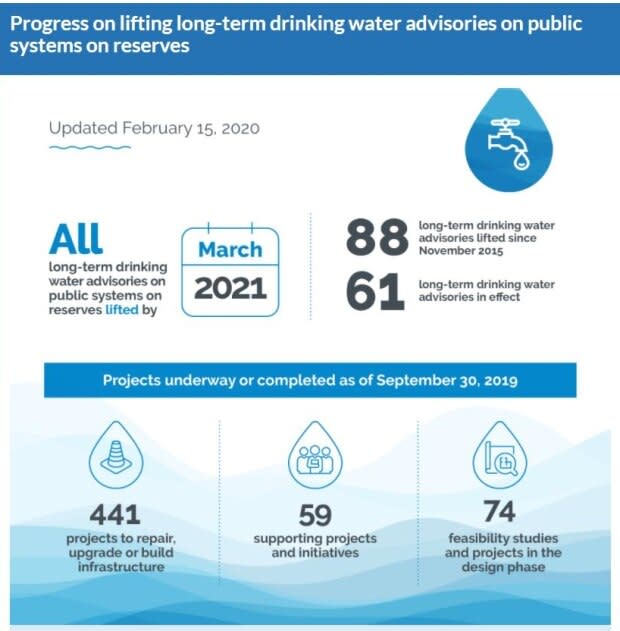Ontario Regional Chief RoseAnne Archibald weighs in on rebuilding Canada's economy
Last week's speech from the throne was a chance for the federal government to set up its vision for the future, amid the COVID-19 pandemic. And Ontario Regional Chief RoseAnne Archibald was listening closely.
It's her job to work with the provincial and federal governments on issues relevant to local First Nations, and she says more concrete action is needed to ensure governments meet their reconciliation commitments.
"I heard a couple of things that I thought were hopeful and certainly could apply to First Nations. And those were the announcements around women in the economy and further investments in youth employment. So those things I thought were very positive," Archibald said.
But she said she was greatly disappointed by the lack of attention to boil water advisories.
"In Ontario, we have 66 communities under boil water advisories and we have four that have do-not-consume orders. And that's half of our communities. We have 133 First Nations in Ontario. And so that, to me, is not acceptable," she said.
While the throne speech in 2019 set a clear target date of March 2021 to eliminate the long-term advisories, this year's speech from the throne made no reference to that deadline. The federal government is apparently less comfortable with that goal, due to the pandemic, CBC learned from a senior government source.

"The fact that the date of March 2021 was dropped from their original target date also speaks to the ability that they're not going to meet their target date. We are still waiting for clean drinking water, a basic human right for First Nations," said Archibald.
The pandemic has also made it more difficult to get construction workers into communities.
There have been enough delays, says Archibald. "What we really need now, moving forward, is accelerated funding and accelerated action."
"If these were 66 non-native communities, 66 municipalities, it would not be acceptable. There would be billions and billions of dollars and really swift action taken. And to me, that speaks to the systemic racism within government and within the whole system. And that has to change. We have to move beyond that. We have to come out of this pandemic in a better, better space than when we went in."
Ontario First Nations facing big deficits
Archibald says if government wants an example of what swift, decisive action looks like, it should look to how Indigenous leaders have handled the pandemic in their communities.
"Many of them lock down their communities. They took a harder line than, say, surrounding municipalities, on how to protect citizens, because they know that the health system within their community in many cases is non-existent or if it does exist there, it's inadequate," she said.
Community leaders were forced to make these hard choices because of a lack of government-provided infrastructure, said Archibald. For that, she says chiefs and councils across Ontario really deserve recognition for their "strong leadership."
"They know that they don't have clean drinking water, many of them. So how can they wash their hands with soap and water? They know that they are in a great disadvantage going into the pandemic and therefore had to take harder action," she said.
"So if anybody's really made a difference on the pandemic, it's been First Nations and they've done so because of the chronic under funding by governments for their communities."
Archibald acknowledges that, like all levels of government, First Nations are going to come out of the pandemic with serious deficits.
"Every government is going into debt right now in order to respond to the pandemic and First Nations are no different. The difference is the ability to recover," said Archibald.
The difference, she said, is First Nations' communities don't have the same tools other levels of government have to stimulate recovery when the dust settles.
"The government of Canada, or even the government of Ontario, they have the ability to borrow [and] repay because they can rebuild their economies. And what are their economies based on? The land that everybody lives on, and that is treaty land."
Everyone in Canada is a treaty holder, Archibald said.
"And when we think about rebuilding the wealth of Canada and rebuilding the wealth of Ontario — that is coming from First Nations, and we need to be a part of that."

